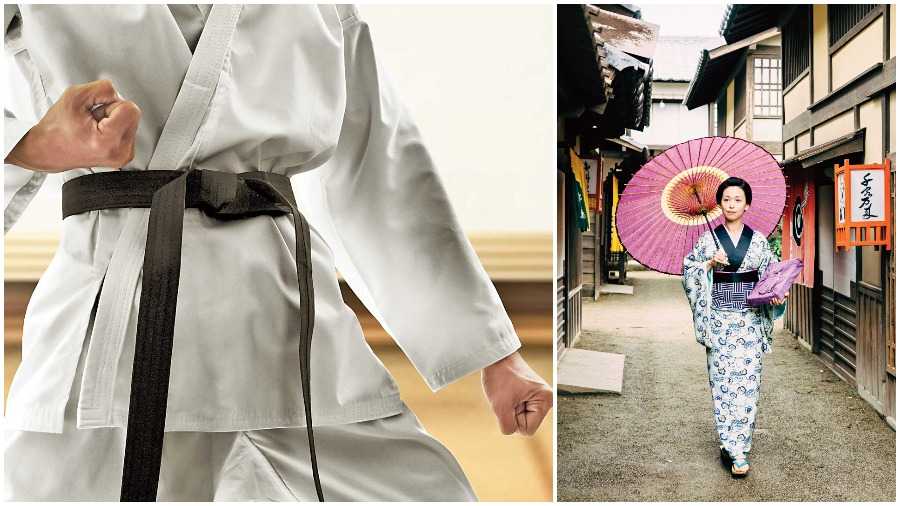The Gi is a Japanese term used for the uniform worn by martial artists during training and competition. Each martial art has its own unique Gi. It might seem uncomfortable to a newbie, but it is second skin to seasoned martial artists.
A few reasons why a martial arts student always wears a Gi during practice:
A matter of pride:
A Gi for a martial artist is what a uniform is for a soldier. It instils in the student a sense of pride. It brings focus and attention back to the class and emphasises the seriousness of the training.
Equality and humility:
Martial artists are people with special skills. But what is taught early in class is to be humble in using or displaying them. A Gi teaches you that no matter who you are outside the Dojo, your seniority within it depends upon your level of expertise and skill and nothing else. The coloured belt worn around the Gi normally denotes seniority, something that is earned through experience and examination and not given easily.
Convenience:
Although a Gi might seem cumbersome at first, it is most appropriate for combat training. A Gi is able to sustain quite easily the tugs, pulls and grips that would ordinarily tear a gym T-shirt in no time.
Being special:
Yes! Wearing a Gi makes you feel special. Not everyone has the will to follow the way of the warrior. A Gi is presented to only those few who regularly show up for class and go through the grind that will eventually help them achieve mastery over the art and over themselves.

The writer, a martial arts and fitness coach, is the founder of Mike’s Martial Arts, a Calcutta-based martial arts and advanced fitness centre
The design
The Gi is inspired by The kimono. The cross over design is typical to Japan. Three parts make up the Gi: jacket — uwagi, pants — zubon and belt — obi.
The jacket has two lapels. The left side comes on top of the right. The obi is tied in two styles, the traditional and “Hollywood”.
Wearing the Gi correctly and tying the belt is one of the first lessons the student learns. The colour of the belt depends on the Karateka’s rank. Made from strong fabrics like heavy cotton, sometimes polyester or canvas, the Gi is meant to withstand snappy and swift moves, high kicks, and sometimes combat or “Kumite”.
Freedom of movement is key. In such scenarios, it is often said, the dirtier the Gi, the better the student, indicating the level of practice.
The fabrics have to be good for ventilation and sweat absorption.
Most Dojos encourage a white Gi, but a black one may be allowed. In many cases, it is only the Sensei who wears black Gi. There are three styles of the Karate Gi :
European, Japanese and Kata. The difference is between the length of the pants, sleeves and jackets.
The Gi is a powerful yet humble garment. It represents the potential of the wearer to develop great inner strength and the ability to use power responsibly.
With great power comes great responsibility.

The columnist, a personal stylist, speaks her mind on everything about fashion











